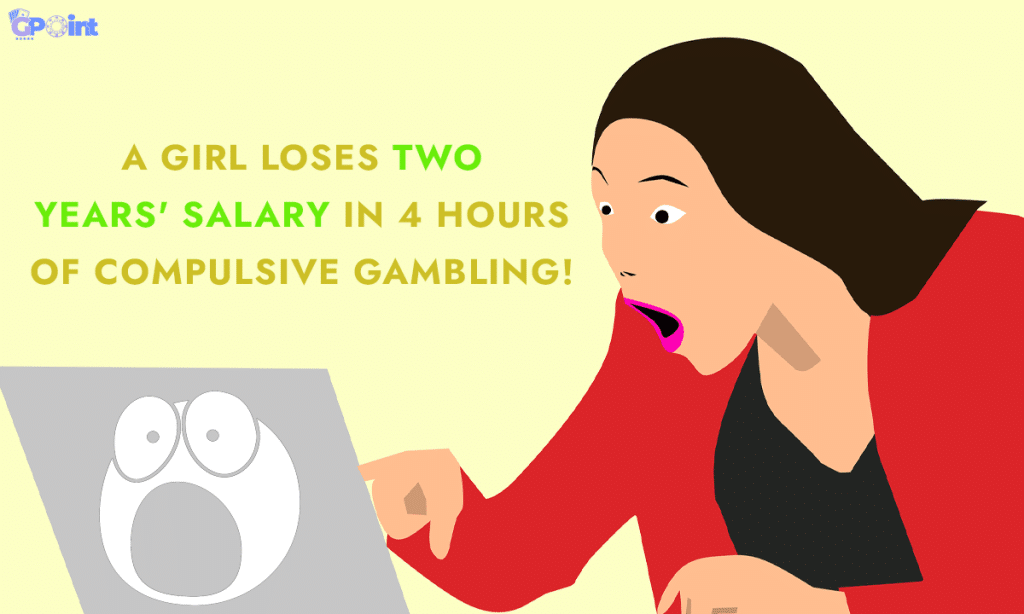It is clear that all the efforts of the regulators to control problem gambling are not enough, as the number of addicts is increasing!
The British newspaper, The Mirror, published a report about British hairdresser Christine Tolaini, who lost more than 70,000 pounds sterling in a frantic gambling session that lasted only four hours!
However, the big surprise here is that Tolaini has been seeking help since 2017 and this proves that the help programmes available today are ineffective in tackling problem gambling.
In this article, we will shed light on this incident and learn about the decisions taken by regulators to address the problem of compulsive gambling in the UK.

TOP alternative and safe UK Sites
▶ Disclaimer
We maintain an affiliate partnership with this casino. Our earnings are generated when players visit the casino's website, register an account, and make deposits. It's important to note that this arrangement does not impact the review or rating of the casino
🦺 Secure 🤨 Trusted ✅ Verified 🇬🇧 Accepted
Last Updated: 1 May 2025
Non Gamstop Sites
- Generous bonuses and promotions
- Wide variety of currencies and payment methods
- Broad range of games and software providers
Non UK Casinos
- Higher withdrawal limits
- Tailored VIP programs
- Operate under international licenses
Crypto Casinos
- Instant deposits and withdrawals
- Secure blockchain technology
- Access to new and unique games
Bookmakers not on gamstop
- Wide range of sports and markets
- Exclusive betting promotions
- Enhanced privacy for players
Table of contents
How Did the Story Begin?
In the year 2020, Christine Tolaini was suffering from anxiety, stress and not sleeping well one night and decided to play slot games online at a British casino.
After she used up her debit card balances she wouldn't stop playing. In fact, she was lucky enough to win the Rainbow Riches grand prize. However, she did not stop playing. Instead, Tolaini wagered the whole jackpot amount to keep playing. After losing everything, she used more than 20 credit cards and lost more than £70,000 in just four hours!
In an interview with The Mirror, Tolaini said she had lost more than £190,000 in five years of gambling.
Tolaini's losses would have been lower if the casino had banned credit cards, set limits on withdrawals, or had a simple algorithm to detect loss-chasing or compulsive gambling patterns.
There is a huge difference between a regular gambler and a problem gambler; The former stops playing when he feels that he has enjoyed gambling and it is time to do something else. However, the problem gambler cannot stop playing until he has used up all money he owns.
Casinos know this but they do not prevent problem gamblers because more than 50% of the profits of gambling sites come from gambling addicts! On the other hand, the regulators are slow to act and do not take quick decisions to solve the problem gambling.
Gambling Addiction Rates Rise Among British Women!
This incident indicates that rates of gambling addiction among women are rising at a high rate.
This means that charities and organizers must conduct studies to find out why women gamble excessively and how appropriate awareness campaigns can be designed for them.
According to the latest report published by non GamStop, 70% of the registrants were male, while 30% were female. Although females represent a low percentage, they grow at an accelerated rate.
On the other hand, GambleAware notes that the proportion of women who are addicted to gambling may be higher but they don’t seek help fearing the gambling stigma, which is particularly embarrassing for women.
GambleAware published another report which stated that 25% of gamblers are between the ages of 18 and 49, an age group that was previously ignored by all awareness campaigns.
The research indicated that 38% of women bet more money than they initially intended, and 21% of female players chased after their losing bets.
Why Do Women Gamble Compulsively?
Women gamble compulsively for different reasons than men. Studies show that women gamble to get rid of feelings of boredom, loneliness, and anxiety. On the other hand, men gamble intending to relieve stress and escape from psychological problems. In addition, several other studies point to the role peers play in influencing their friends to gamble compulsively.
With the economic problem worsening in the United Kingdom, the frequency of gambling among women is expected to rise, which is why the UKGC has taken more measures to protect vulnerable groups from gambling addiction.
How Serious Is Problem Gambling Among Women?
Over the past years, problem gambling has affected men far more than women. However, the gap is narrowing as the popularity of virtual gambling accelerates.
According to a report by the National Council on Problem Gambling, more women between the ages of 45 and 64 have a gambling problem than men.
According to Sam Skolnik, author of “High Stakes: The Rising Cost of America's Gambling Addiction,” the types of bets placed may vary by gender.
“Men prefer games of skill, and women prefer games that rely on luck to distract themselves from their personal problems.”
For many women, they are running away from things that are causing them bad feelings such as abuse, neglect, or loneliness. Betting on games such as slots or video poker allows women to feel immersed in the game.
On the other hand, men prefer quick gambling options because this gives them a feeling of excitement.
Although women have moved beyond traditional roles, many people still think of women as housewives and mothers. Therefore, for some, portraying women with a gambling addiction is not as easy as it is for men. Perhaps this is one of the reasons why women hide their gambling addiction, which compounds the problem.
What Are the Consequences of Hidden Addiction for Women?
Since solitary gambling is a tool for escape, the consequences can accelerate before family and friends realize the problem.
The cycle of hidden addiction goes through several stages, as it begins with just the experience, after that it replaces hobbies and recreational activities, then it devours the time allotted for work and family. Then, it ends with falling into a sea of debt and psychological problems.
This can lead to a tragic time for family members when savings are lost and property is at risk and legal problems happen which may cost more money and may lead to time in prison.
What Have Regulators Done to Control Problem Gambling?
After this incident became public, the UKGC banned credit card gambling completely. Also, the British Gambling Commission has placed heavy fines on gambling sites that welcome self-excluded players or email customers who had opted out of marketing.
































[…] very sketchy and do not address the real causes behind it. Thus, it is difficult for regulators to help compulsive gamblers and take effective measures to help […]